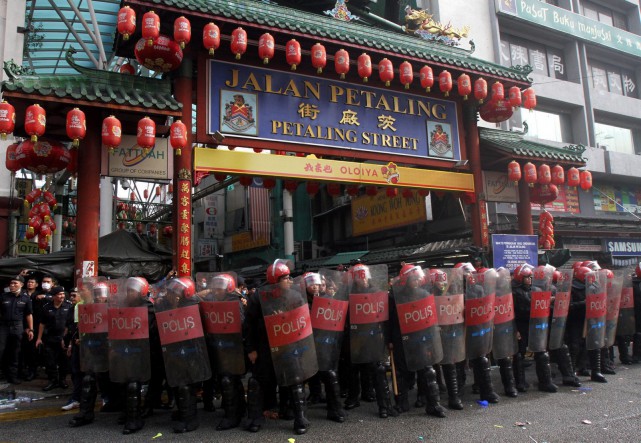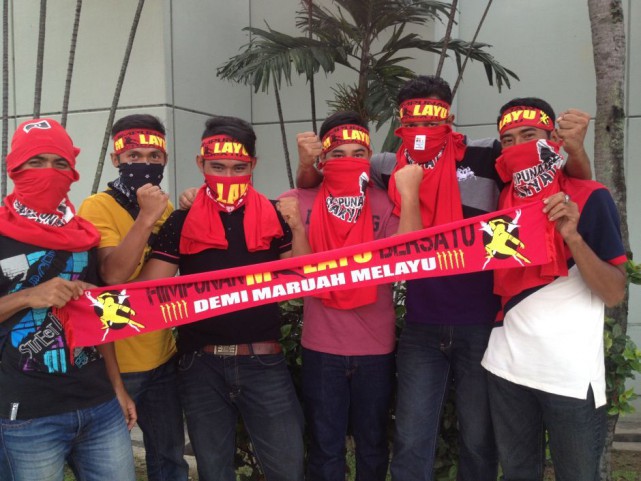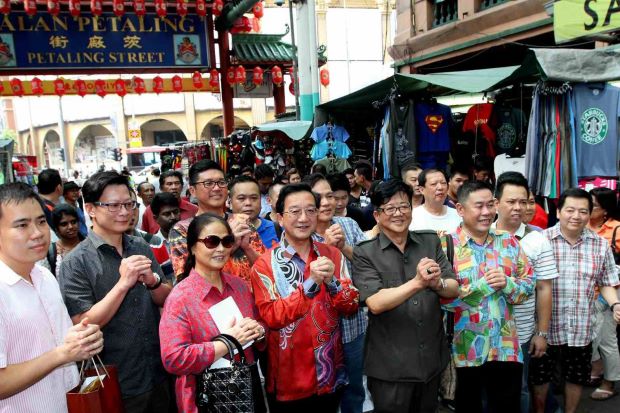Memo #342
By Kai Ostwald – kai.ostwald [at] ubc.ca
 With the major exception of the South China Sea, China’s political presence in Southeast Asia has been low profile in recent decades, if only because it has chosen to project power indirectly through economic might and behind closed doors. Its response to recent events in Malaysia, however, likely signal the beginning of a bolder and more assertive presence in the domestic politics of its Southeast Asian neighbours, which China sees as within its natural sphere of influence.
With the major exception of the South China Sea, China’s political presence in Southeast Asia has been low profile in recent decades, if only because it has chosen to project power indirectly through economic might and behind closed doors. Its response to recent events in Malaysia, however, likely signal the beginning of a bolder and more assertive presence in the domestic politics of its Southeast Asian neighbours, which China sees as within its natural sphere of influence.
On August 29th and 30th, the Malaysian NGO Bersih held a series of rallies to press for reform of Malaysia’s highly biased electoral system. Two weeks later, the government-backed group PESAKA organized a racially-charged counter rally to ‘restore the dignity of the indigenous Malays’, which it claimed was injured by the Bersih rallies. The PESAKA rally forcefully tried to enter Kuala Lumpur’s Petaling street, the symbolic heart of Chinatown. This action was easily one of Malaysia’s tensest ethnic confrontations since the deadly race riots of 1969.
On September 25th, the Malaysian newspaper The Star reported that the Chinese ambassador to Malaysia visited Petaling Street following the PESAKA rally and stated that Beijing opposed racial discrimination and would not tolerate violent demonstrations. He followed this with an additional statement at the Maritime Silk Road China – Malaysia Forum that translates as:
“…No matter how far you go, how many generations you stay (in Malaysia), China will always be the ‘maternal home’ for overseas Chinese Malaysians… We hope that all overseas Chinese in Malaysia live happily, have professional success, and live in harmony with different ethnic groups….”
It is not difficult to read these statements as an assertion that ethnic Chinese in Malaysia form a part of China’s national interests, and that China is prepared to protect those interests. Public statements that strong are made only with Beijing’s endorsement. The warning shot worked: the Malaysian government moderated its tone and additional PESAKA rallies were cancelled. More importantly, we likely witnessed the emergence of a bolder and more assertive Chinese foreign policy in Southeast Asia.
About the Author:
Kai Ostwald is an assistant professor in the Institute of Asian Research and the Department of Political Science, as well as the Director of the Centre for Southeast Asia Research, at the University of British Columbia in Vancouver.
Links
- Channel NewsAsia, “In photos: Bersih 4.0 rallies around the world,” August 29, 2015.
- China Press, “Bilateral Relations are Good, says Huang Huikang,” (in Chinese), September 28, 2015.
- Leon Comber, 13 May 1969: The Darkest Day in Malaysian History, Singapore: Marshall Cavendish International (2009).
- The Economist, “Playing with fire: A floundering government risks igniting ethnic tensions,” September 26, 2015.
- AsiaOne, “Najib wants Petaling Street fracas investigated,” September 16, 2015.
Related Memos:
See our other memos on Malaysia.



Kai,
Your analysis is spot on. I agree wholeheartedly as I follow politics in China n Malaysia for many years now.
I may add that China remembers the huge contributions overseas Chinese, sacrificed and contributed to the rebuilding of China by sending old clothes, monies and donating to build schools and road to their ancestral villages, mine included.
The gratitude was expressed by the then Premier Zhou Enlai to a delegation of community leaders including my father in 1956. This gives you a better insight as to why China treats their overseas brethren like their own citizenry especially when discrimination and racisms run high. China rescued Chinese Indonesians when there was a racial massacre in the sixties by sending two passenger vessels to repatriated back to China averting further bloodbath.
[…] But the investments are not costless for Malaysia: China has already demonstrated a willingness to meddle in Malaysia’s domestic politics, and this will very likely increase as its financial stake in Malaysia […]